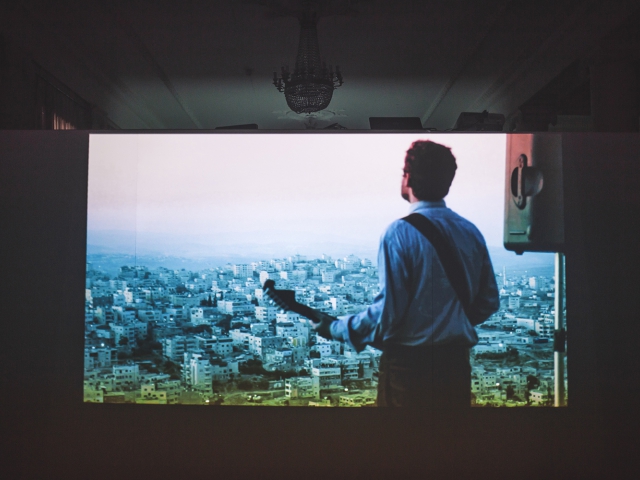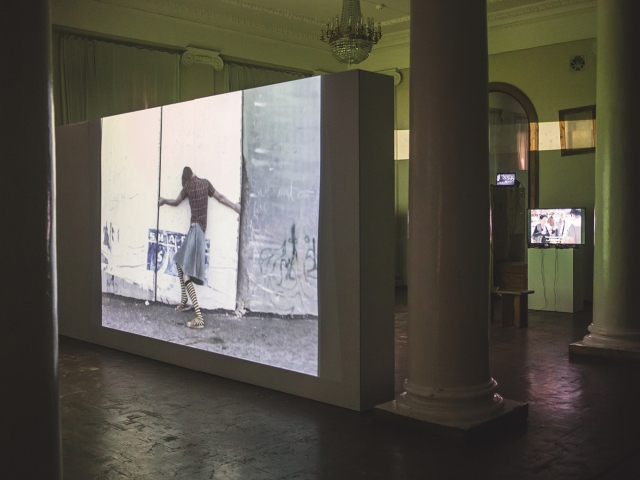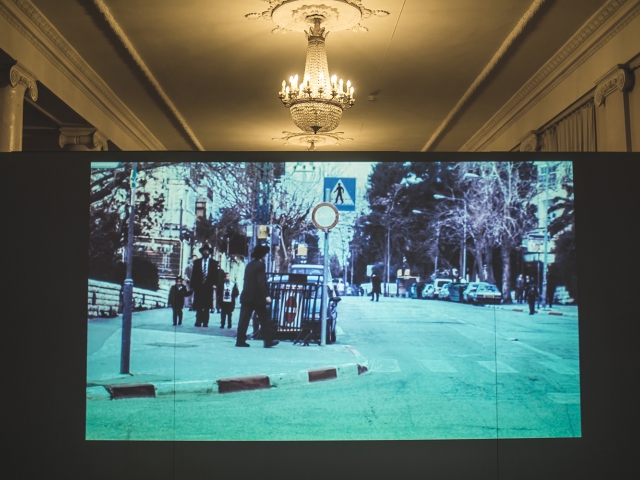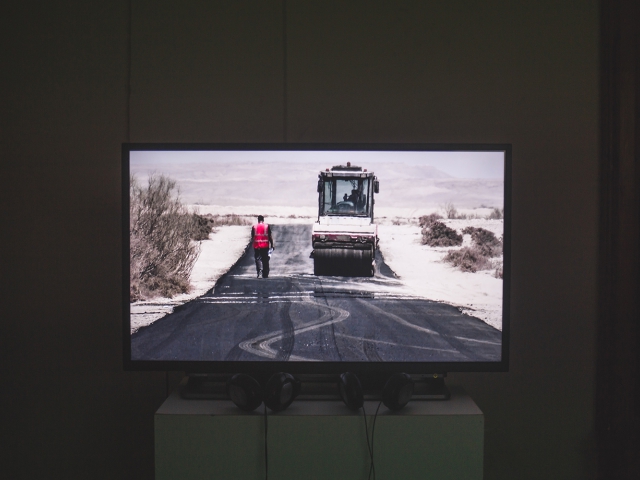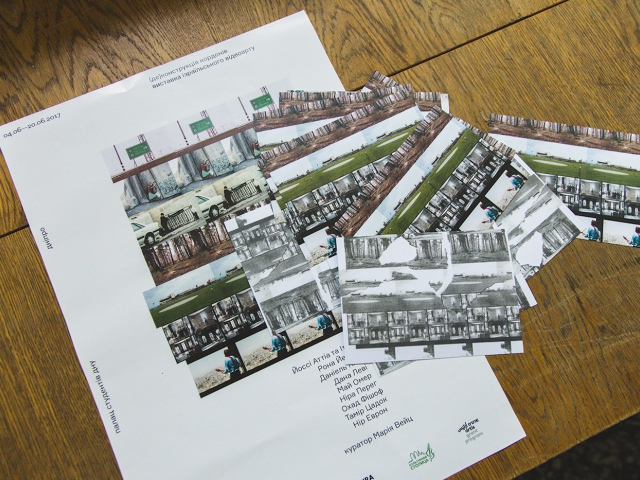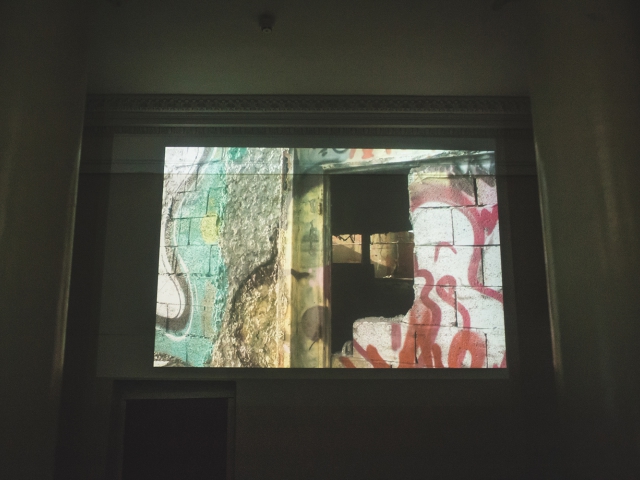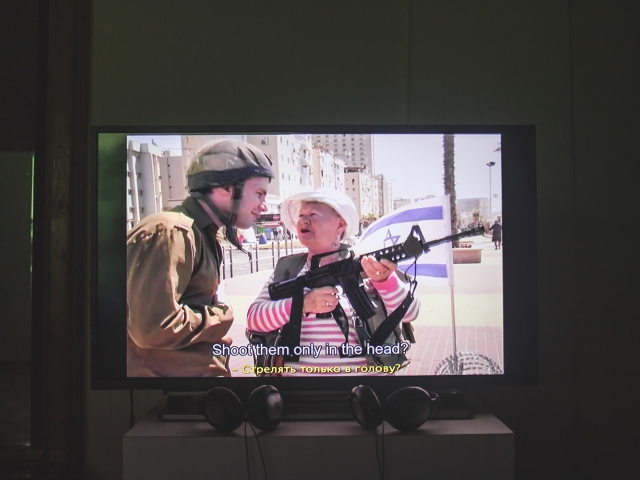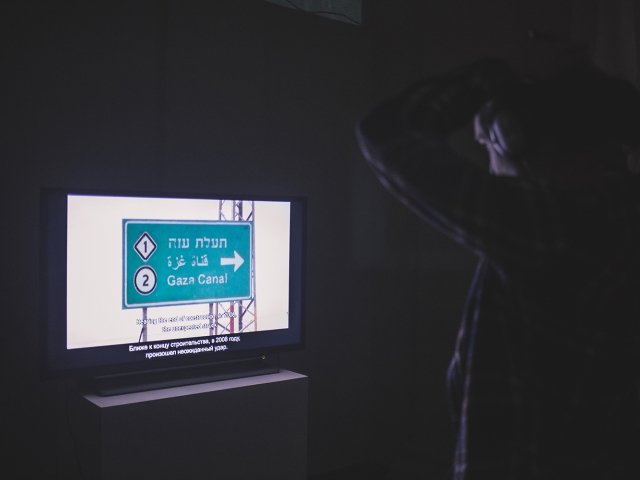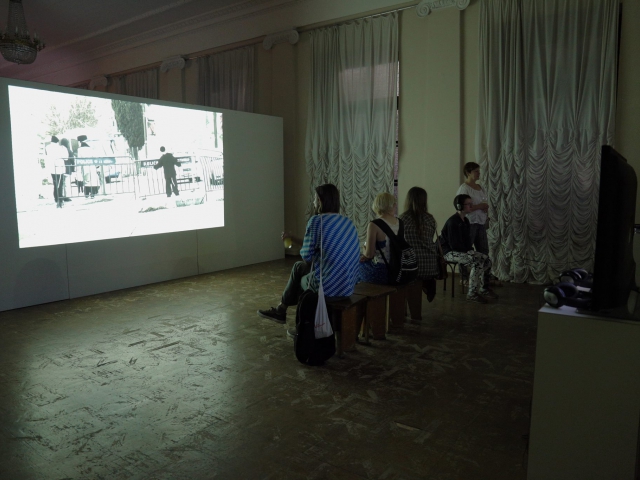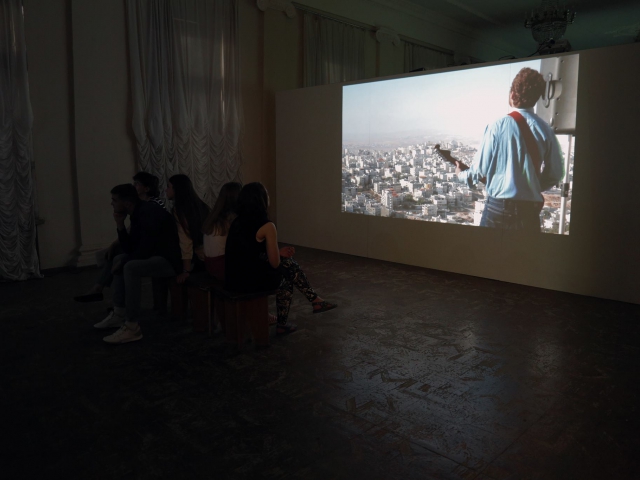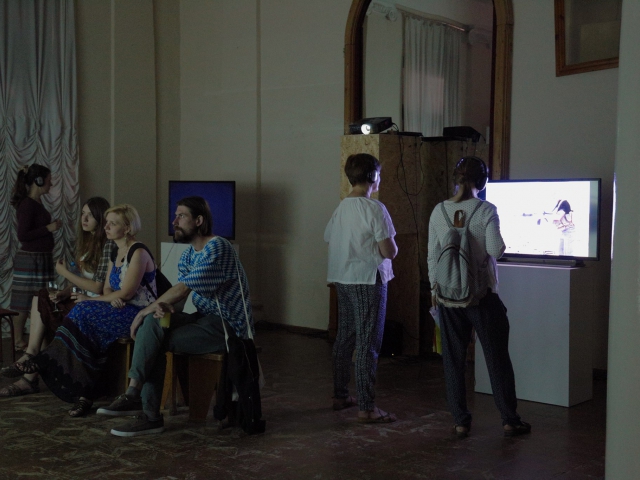- English
- Русский
/De/Constructing Borders
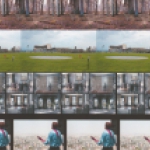
/DE/CONSTRUCTING BORDERS
exhibition of video art from Israel
June 4-20, 2017
Student Palace, Shevchenka Square, 1, Dnipro, Ukraine
as a part of the Construction Festival
Opening: June 4, 17.30
Lecture by Maria Veits: June 8, 17.00
Participating artists: Yossi Attia and Itamar Rose, Nir Evron, Ohad Fishof, Daniel Kiczales, Dana Levy, Mai Omer, Nira Pereg, Rona Yefman and Tanja Schlander, Tamir Zadok
curated by Maria Veits
‘(De)constructing Borders’ is the first exhibition of contemporary video art from Israel in Dnipro. It brings together videos and video installations by prominent and emerging artists, who in their works address various boundaries that we face in our everyday life - territorial, political, religious, ethnical, mental, public and personal.
The concept of borders as well as processes of enforcing, moving and destroying them have always been crucial for all societies and considering the recent global sociopolitical transformations this issue becomes urgent again on international level. The exhibition reflects on questions of dis/integration, collective identity and memory, contested history and ideological changes.
For Ukraine the question of borders and boundaries appears to be highly relevant at the moment. In addition to the military territorial conflict with Russia the country is undergoing the process of decommunization, so creating new ideological and political borders and reclaiming its historical past are integral processes in the changing Ukrainian society. Being placed into the local context, presented works will gain new meanings and significancy.
Presented works vary in terms of their approach to discussing different kinds of borders and attitude of people to them: some show facts which never appears in the mainstream media due to their critical nature and thus create alternative media discourse, some are research-based investigations including interviews and archives, and others are built on a provocation by engaging people in voluntary and unvoluntary communication in public spaces. This allows for the exhibition to demonstrate a wide range of artistic practices and methods that present diversity of the visual language when it comes to analysis of state policy, territorial occupation and mechanisms of nation-building via legislaion, mass media, education and religion.
The exhibition takes place in the former Student palace (also known as Potyemkin Palace), a monument of Soviet architecture of the mid-20th century. The building is an example of propagandistic architecture as it was a place that was targeted towards youth and served as a platform for various events and activities for and with the participation of young people. In the Soviet Union, similar buildings could be found in many cities - there was an entire network of such establishments. Also, in the 1980s, when the USSR system started to decay, such 'palaces' started to host underground and alternative events becoming foreposts of 'western' culture in the USSR. Today, in contemporary Ukraine, the function of the building and its usership has changed drastically: right after the collapse of the Soviet Union the palace has not been used solely for propaganda and ideology-charged activities, it started hosting events of different nature which often had no correlation with current political regimes. At the same time, it still represents a monument of a certain era in the history of the country. Due to its controversial and changing history the space was chosen as the venue for the exhibition, which is directly linked to the topic of reshaping borders and recontextualizing spaces.
The exhibition takes place as a part of ‘Construction’ Festival annually carried out by Kultura Medialna. This is festival of new media and audiovisual art in urban space. The project appeals to physical and perceived image of the city, discovering a new vision of its peculiarities and raising attention to our commons: space, responsibility and future.
In 2017 the ‘Construction’ festival focuses on discussing the role of the public space in different societies, relations between citizens and the governments, notion of post-Soviet public space as well as marking the borders between public and private, both physical and mental. For the first time since it was originated ‘Construction’ plans to include a video art exhibition into its program that will broaden the span of the festival’s activities and will enlarge our audience.
The exhibition is organized and produced by Kultura Medialna and supported by Artis and Dnipro municipal program "Cultural Capital".
Exhibition documentation on Facebook



